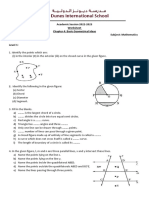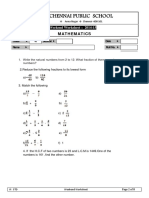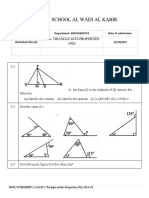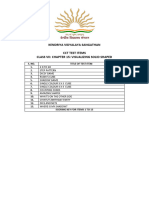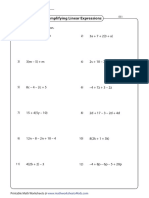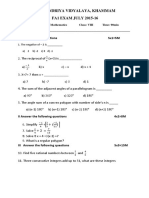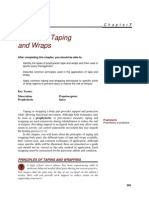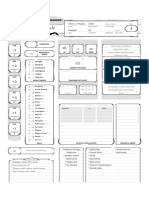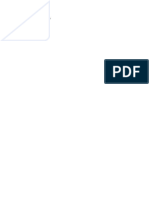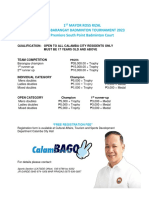0% found this document useful (0 votes)
462 views5 pagesFactors and Multiples
The document contains a series of mathematical exercises focused on factors, prime numbers, and divisibility rules. It includes fill-in-the-blank questions, problem-solving tasks for finding the highest common factor (HCF) and least common multiple (LCM), and classification of numbers as prime or composite. Additionally, it covers concepts such as co-prime numbers, twin primes, and provides various methods for prime factorization.
Uploaded by
revathiCopyright
© © All Rights Reserved
We take content rights seriously. If you suspect this is your content, claim it here.
Available Formats
Download as DOCX, PDF, TXT or read online on Scribd
0% found this document useful (0 votes)
462 views5 pagesFactors and Multiples
The document contains a series of mathematical exercises focused on factors, prime numbers, and divisibility rules. It includes fill-in-the-blank questions, problem-solving tasks for finding the highest common factor (HCF) and least common multiple (LCM), and classification of numbers as prime or composite. Additionally, it covers concepts such as co-prime numbers, twin primes, and provides various methods for prime factorization.
Uploaded by
revathiCopyright
© © All Rights Reserved
We take content rights seriously. If you suspect this is your content, claim it here.
Available Formats
Download as DOCX, PDF, TXT or read online on Scribd
/ 5

























